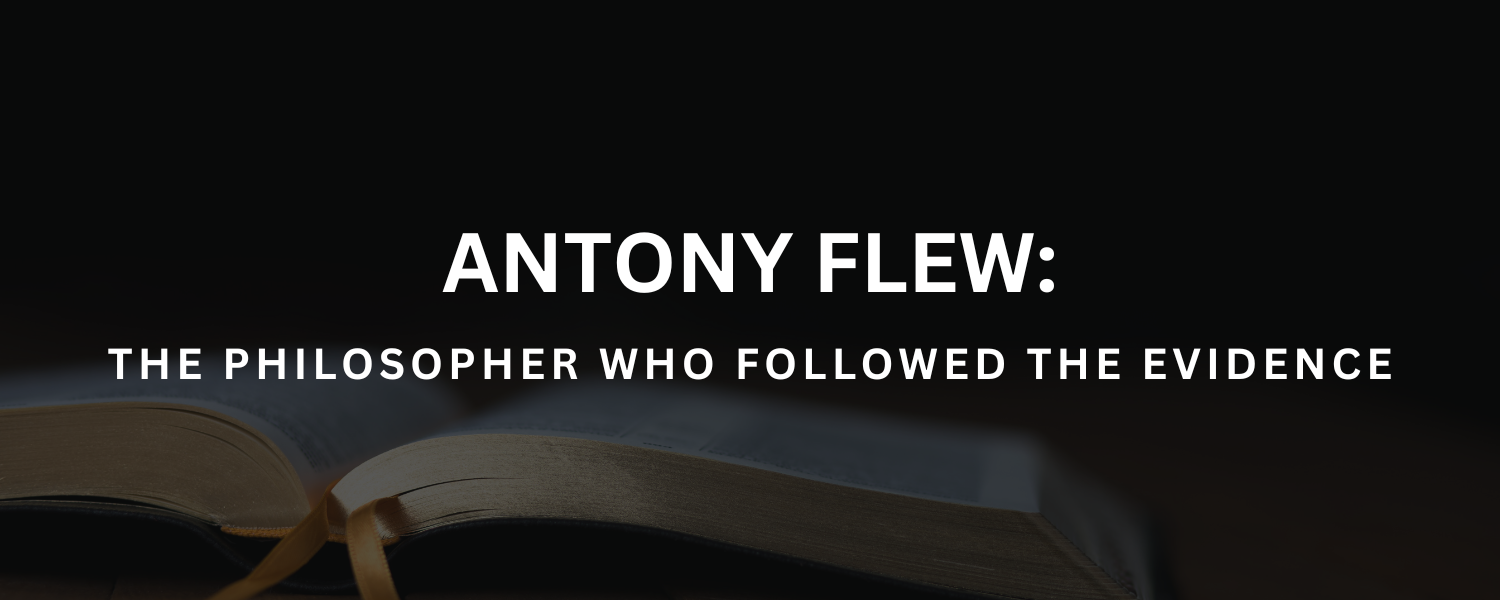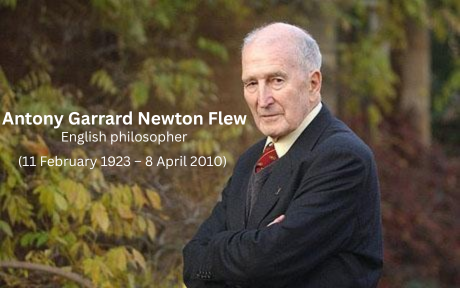Antony Flew: The Philosopher Who Followed the Evidence

For over 50 years, Antony Flew stood as one of the world’s most influential atheist philosophers. Long before Richard Dawkins or Christopher Hitchens became household names, Flew was the go-to figure for arguments against the existence of God. But in a surprising turn late in life, Flew publicly changed his mind—shifting from atheism to belief in a creator.
Born in 1923 in England, Flew was the son of a Methodist minister. He rejected his religious upbringing in his teens and pursued philosophy, eventually studying at Oxford. He became known for his sharp, analytical arguments that laid the groundwork for modern atheistic thought. His 1950 essay Theology and Falsification became a staple in philosophy courses around the world.
For much of his career, Flew argued that atheism should be the default stance in philosophical debate—what he called “the presumption of atheism.” He demanded that theists bear the burden of proof. He was not interested in soft answers or emotional appeals. His approach was rigorous, rooted in evidence and logic.
But over time, that stance began to shift. Flew described his move toward belief as a “twodecade migration.” In 2004, at the age of 81, he announced that he now believed in God—not based on a religious experience or personal revelation, but on what he called the “evidence.”
The turning points were significant:
- The integrated complexity of the universe suggested to him that there was Intelligence behind it.
- The origin and structure of DNA raised questions he no longer felt atheism could answer.
- The very fact that the universe is governed by rational, discoverable laws struck him as pointing to a Mind behind nature.
These were not trivial observations, and they didn’t come lightly. Flew was careful to note that his shift wasn’t toward Christianity or any revealed religion. He embraced a form of philosophical theism or deism, closer to Aristotle’s concept of a divine unmoved mover—an eternal, immaterial, omniscient source of all existence.
Still, for someone so central to atheistic philosophy, his change of mind sent shockwaves. It offered a serious counterpoint to the rising voices of New Atheism and reminded many that even deeply entrenched positions can—and sometimes should—be re-examined.
His final book, There Is a God: How the World’s Most Notorious Atheist Changed His Mind, is a concise account of how and why he came to believe in a Creator.
In it, he explains,
“I had to go where the evidence leads—even if personally I didn’t want to go there.”

Flew’s journey is a powerful reminder that belief in God isn’t always born from emotion. Sometimes, it comes from years of hard thinking and the humility to follow the facts, wherever they lead.
What about you?
- What do you believe is the best explanation for the origin and fine-tuning of the universe?
- Is it possible that reason and science point not away from God—but toward Him? If Flew’s story stirs questions for you, here are a couple of thoughtful reads to dig deeper:
- The Case for a Creator by Lee Strobel — a former atheist journalist investigates the scientific case for design
- Mere Christianity by C.S. Lewis — a classic, reasoned approach to Christian belief from another former atheist
The path Flew walked didn’t end in Christianity—but it got him to the threshold. Where does the evidence lead you?
Be the first to comment